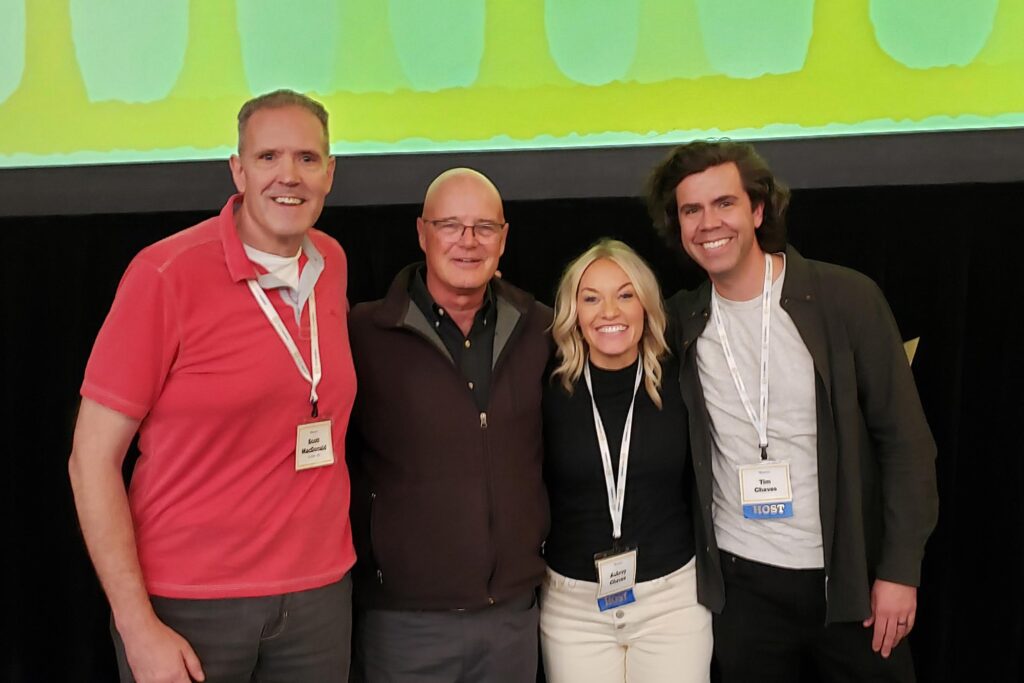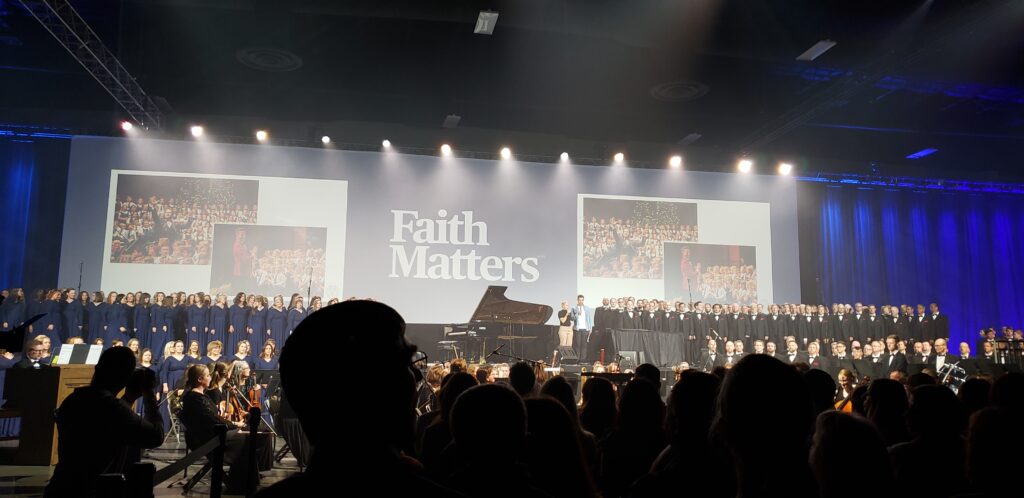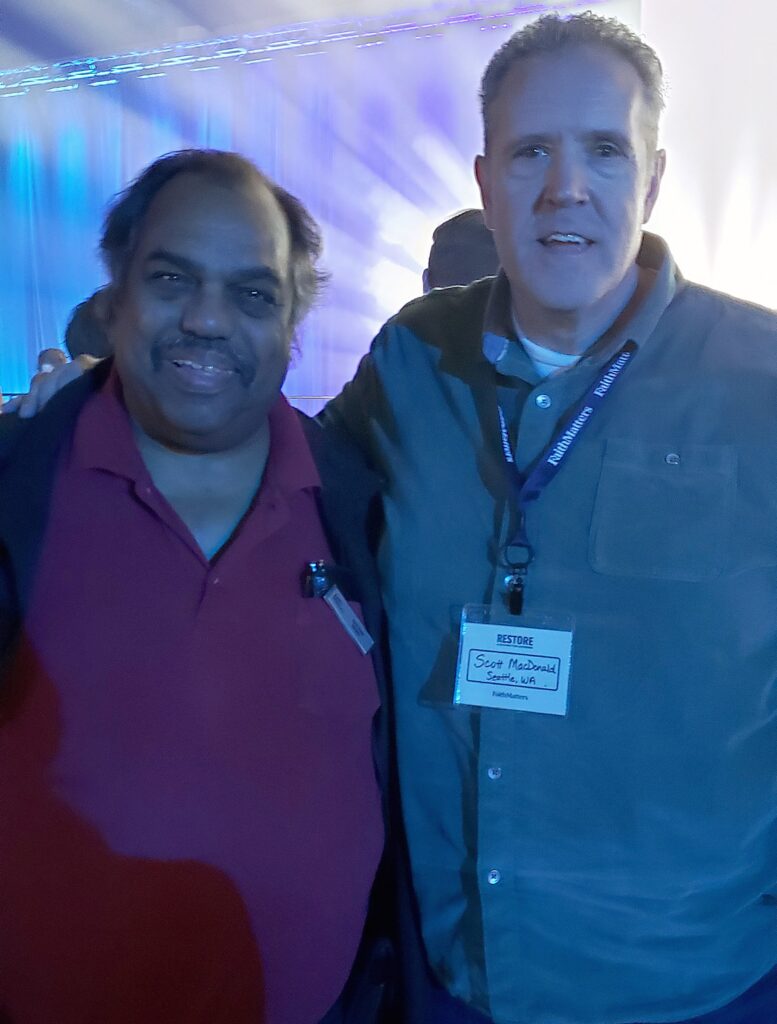The good news is that I am not the only person on a faith journey – many people are on their own journeys, and while everybody’s journey is unique, it still provides a sense of community. There are many podcasts that touch upon these subjects.
A few years ago, I happened upon a Faith Matters podcast where the guest was Brian McLaren, who is a Christian pastor and an expert on faith crisis. His book Faith After Doubt is the seminal book on this topic. In it, he describes four stages of faith:
Stage 1: Simplicity
This is the first stage where everything is very simple and transactional. If you do this, God will do that, and everything is perfect. Life is a war. Everything is black and white and is either known or knowable. Good always prevails and the bad guy always gets their comeuppance. Church leaders are always right. Doubt is weakness, failure, or sin.
Stage 2: Complexity
This stage bends more towards pragmatism and individuality. Life is a game with winners and losers. Everything is doable or possible. Church leaders are coaches who will help you win. Doubt is a problem to be solved (or a sickness to be cured).
Stage 3: Perplexity
This is the stage when everything falls apart. Life is a cruel joke. Everyone has a point of view, which is merely a view from a point. Church leaders are manipulators who control the naïve. Doubt is a virtue to be cultivated.
Stage 4: Harmony
This stage takes a more integrated or holistic view. We are all connected and part of a greater whole. The main motivation is love and finding connection. Church leaders are fallible and imperfect (just as we are). Doubt is a necessary part of life – a portal between stages.
The scriptures give many examples of these stages:
- In the parable of the two sons (often referred to as the parable of the prodigal son), the returning son is in stage 3, the son who stayed is in stage 1, and the father is in stage 4.
- The entire book of Ecclesiastes is written from the stage 3 perspective.
- Any Book of Mormon story concerning an “antiChrist” is stage 1. The protagonist always learns they are wrong (usually from some divine event), and then they are punished (usually with death).
- Jesus provides a great example of stage 4 harmony.
Other people use similar analogies:
- Richard Rohr speaks of “first half of life faith” (stages 1 and 2) and “second half of life faith” (stages 3 and 4).
- Jared Halverson compares faith stages to the creation (stages 1 and 2), fall (stage 3), and atonement (stage 4).

Most members of the church (and probably Christians in general) are in stage 1 or stage 2.
I have decided to embrace my stage 3 in hopes that one day I will arrive in stage 4 (I sometimes see glimpses of it).
My current thoughts/beliefs are:
- I no longer really care too much about whether I am going to Heaven, Hell, someplace else, or no place at all. I am not going to focus on gaming a system in hopes that I will be rewarded while others are not. Instead, I am going to focus on being the type of person that I want to be. This is probably why I get along so well with atheists.
- I no longer really care about specific points of doctrine unless they impact how I live my life. For example, whether there is one God vs. three Gods does not really impact how I live. But treating others the way that I want to be treated does impact how I live.
- I still enjoy studying the scriptures and reading books on these topics, but I no longer assume that everything in the scriptures is accurate and should be taken literally.
- I tend to agree with Peter Enns and his book The Bible Tells Me So. The bible should be used to gather wisdom rather than be treated as an accurate source of history.
- Many things in the bible are descriptive rather than prescriptive. For example, Abraham had several wives and concubines. To me, this is describing the customs of that time – it does not mean that I have any obligations to follow those customs.
- Churches are great as far as they are used to benefit society and I am happy to join them in these endeavors.
- I will happily guard an LDS giving machine during the holidays as they fund useful charities.
- My wife and I have been volunteering to help with a Sunday Morning breakfast for the homeless, which is sponsored by the First Methodist Church in downtown Seattle.
- My wife and I also volunteer to support Camp United We stand, which is a county sanctioned homeless camp that moves between churches in the Seattle area.
We do not really have a local community to offer support, but I have enjoyed listening to the Faith Matters podcasts. When they held their first Restore conference in 2022, I flew to Salt Lake City to attend (mostly in hopes of meeting Bryan McClaren). I was not sure what to expect, but for two days I was part of a community and I loved it! On the second day I showed up very early (to get a good seat) and I was first the person there. I ended up becoming an unofficial volunteer, so I got to meet a lot of people and I felt very connected.

I felt that it MIGHT be possible to continue my journey authentically while still maintaining a connection with the LDS church.

At the 2023 Restore conference, I had good conversations with people like Tim Chaves (host of Faith Matters) and Melissa Inouye (author and cousin-in-law) on how they navigate their journeys and how/why they maintain a connection with the LDS church (I also got to talk with Daryl Davis, Pete Enns and some other notable heroes of mine).

I have no idea what directions my faith journey will take me or how it will end, but it is my journey, I am learning a lot, and I wouldn’t have it any other way.

